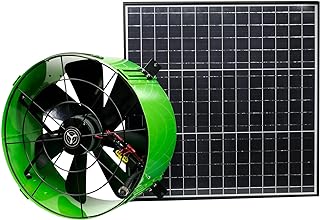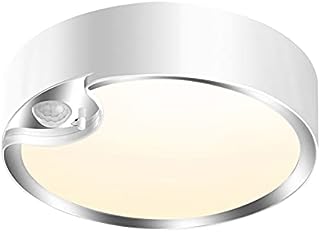5 important factors worth considering when looking for the best grout sealer for kitchen backsplash
Choosing the best grout sealer is really important for keeping your kitchen backsplash looking great for a long time. There are a few key things to think about when picking a grout sealer, like how long it will last, how easy it is to apply, and how well it will resist stains. Making a smart choice can really help your kitchen stay beautiful and work well. In this article, we’ll talk about the important things to consider when choosing a grout sealer for your kitchen backsplash, so you can make a good decision and improve your cooking space.
See our guide to the best grout sealer for kitchen backsplash.
Type of Grout Sealer (penetrating vs. non-penetrating)
Choosing the right grout sealer for your kitchen backsplash is important. There are two main types: penetrating and non-penetrating sealers.
Penetrating sealers soak into the grout to protect it from moisture and stains. They are great for natural stone or unglazed tile backsplashes because they let the grout breathe while still providing protection. On the other hand, non-penetrating sealers create a barrier on top of the grout. They are easier to apply and work well on glossy or non-porous tiles, giving a visible shield against spills and dirt.
The choice between these two types of sealers depends on the material of your backsplash and how much maintenance you want to do.
Consider your lifestyle and aesthetic preferences when choosing a sealer. Penetrating sealers keep the grout looking natural, while non-penetrating sealers can give a glossy or matte finish that adds to your kitchen’s design. Non-penetrating sealers are good if you want an easy-to-clean option, while penetrating sealers are better if you want to keep the original look of the grout.
Whichever type of sealer you choose, make sure it is high-quality to preserve the beauty and function of your kitchen backsplash for a long time.
Application Method (spray vs. brush)
When deciding how to seal your kitchen backsplash grout, there is a debate over whether to use a spray or brush application. Both methods have their advantages and disadvantages. Using a brush allows for precision and control, making it easier to reach every small space in the backsplash. It also gives a satisfying feeling of craftsmanship and attention to detail.
On the other hand, using a spray is faster and more efficient. With just a press of a button, the sealer can be evenly spread over a large area in seconds. This is great for those who value convenience. Additionally, spray sealers provide more uniform coverage compared to brushes, reducing the risk of uneven application.
Ultimately, the decision between spray and brush comes down to personal preference and the specific needs of your kitchen backsplash project.
Durability and Longevity
When choosing a grout sealer for your kitchen backsplash, it’s important to focus on durability and longevity. A high-quality sealer will keep your backsplash looking great for a long time and save you time and money. It will protect against stains, water damage, and mold, keeping your kitchen looking nice.
Although a cheaper grout sealer may seem like a good idea at first, it can lead to frequent reapplications and damage to your grout. Choosing a premium grout sealer made for kitchens can make your backsplash last longer, reducing the need for constant maintenance. By prioritizing durability and longevity, you are investing in the appearance of your kitchen and making sure your backsplash stays in good shape for years to come.
Resistance to Stains and Mold
When choosing a grout sealer for your kitchen backsplash, it’s important to consider its ability to resist stains and mold. A good grout sealer protects your kitchen’s look and helps it last longer. Choosing a sealer made to repel stains and mold can make a big difference in how easy it is to keep your backsplash clean. By focusing on these qualities, you not only make your kitchen look better but also reduce the amount of work needed to maintain it, so you can keep your kitchen looking clean and hygienic without a lot of effort.
Investing in a grout sealer that resists stains and mold is a good way to protect the beauty and functionality of your kitchen backsplash. Stains and mold not only make your backsplash look bad but can also be unhealthy if left unchecked. By choosing a sealer that fights against these issues, you’re taking steps to keep your kitchen surfaces in good shape. The peace of mind that comes with knowing your backsplash is protected from stains and mold is priceless, giving you confidence and satisfaction beyond just how your kitchen looks.
VOC Content (low VOC options for indoor use)
When choosing a grout sealer for your kitchen backsplash, it’s important to focus on products with low VOC content. Why use products with harmful chemicals when there are eco-friendly options available? By choosing low VOC grout sealers, you can protect your indoor air quality and create a healthier environment for you and your family.
Low VOC grout sealers not only reduce indoor air pollution but also limit exposure to harmful chemicals that can have lasting health effects. Opting for these environmentally friendly alternatives shows a commitment to sustainability and personal well-being. Selecting low VOC options for your kitchen backsplash demonstrates a dedication to creating a safe and environmentally conscious space where health and sustainability go hand in hand.
Conclusion
Choosing the right grout sealer for your kitchen backsplash is crucial for keeping it looking great and lasting longer. By picking a good sealer and keeping up with maintenance, you can improve the appearance of your kitchen and protect it from everyday damage. A reliable grout sealer acts as the final touch that keeps your backsplash sturdy and looking good, showing your commitment to both style and practicality in your kitchen. Want more info on smoothie books, check the best smoothie books.

